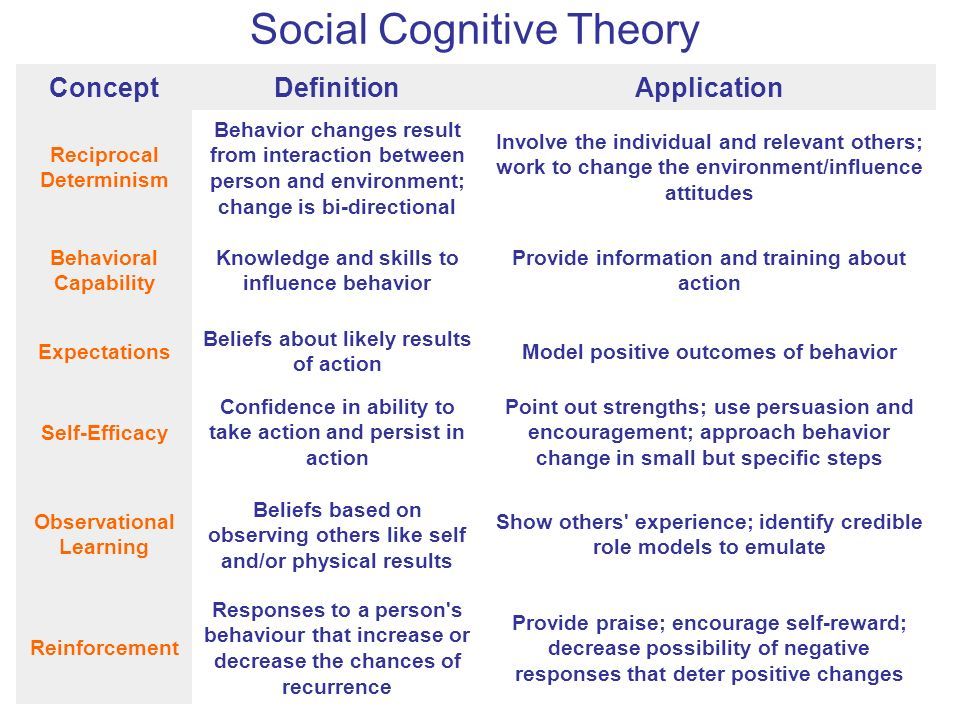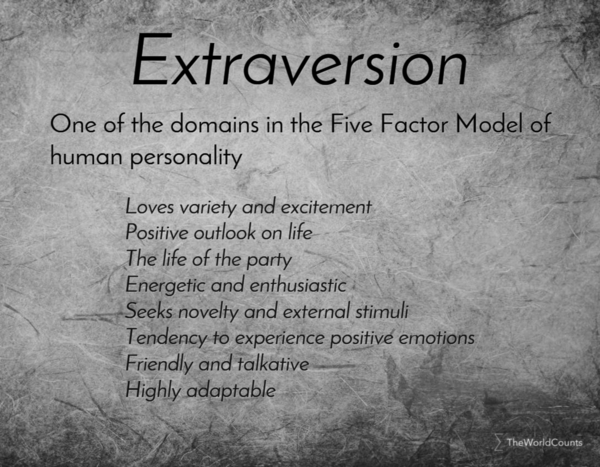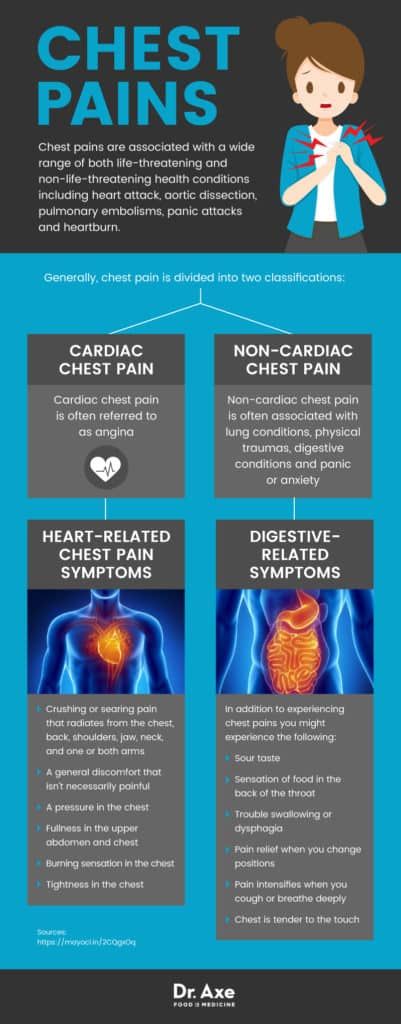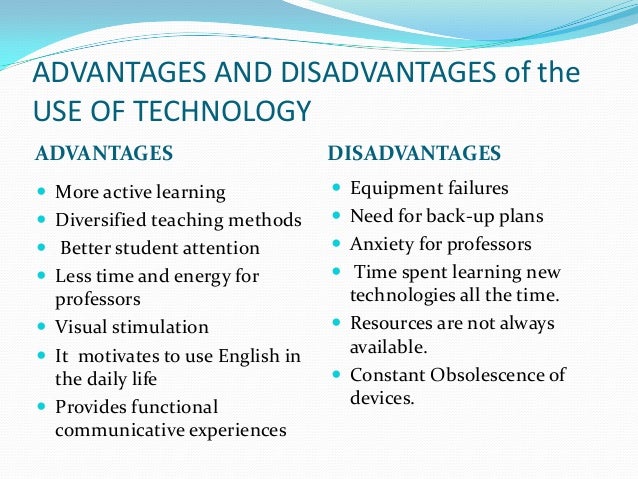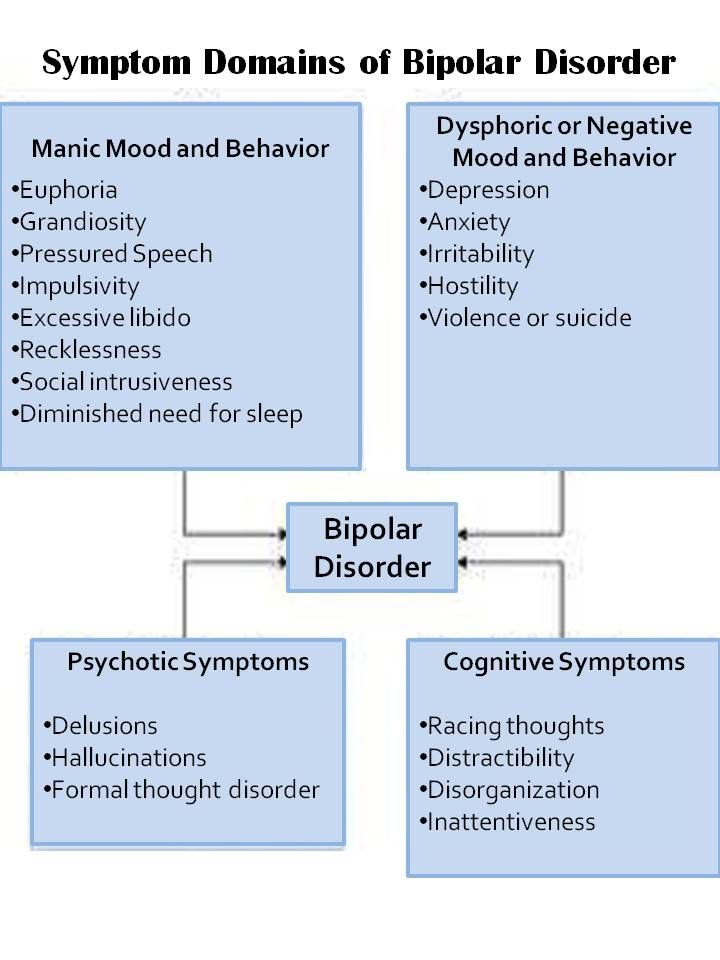Cope with stress at work
How to handle stress at work
If you’re currently working, you probably know what it feels like to be stressed on the job. A must-do project arrives without warning. Three emails stack up for each one you delete. Phones ring, meetings are scheduled, a coworker drops the ball on a shared assignment.
How does your body react to work stress?
Imagine for a moment that your boss has emailed you about an unfinished assignment (a stressor). Your body and mind instantly respond, activating a physical reaction called the fight-or-flight response. Your heart beats faster, your breath quickens, and your muscles tense. At the same time you might say to yourself, “I’m going to get fired if I don’t finish this.” Then to manage your anxiety and negative self-talk, you work late into the night to complete the task.
Over the course of our evolutionary history, humans developed this coordinated fear response to protect against dangers in our environment. For example, a faster heart rate and tense muscles would help us escape from predators. In the modern era, fear continues to serve an important function. After all, the fight-or-flight response can provide the necessary energy to pull an all-nighter and keep your job.
But what happens if you encounter stressful experiences at work every day? Over time, chronic work stress can lead to a psychological syndrome known as burnout. Warning signs of burnout are overwhelming exhaustion, cynicism, and a sense of inefficacy. Certain work-related stressors are closely linked with burnout. Examples are having too much work or too little independence, inadequate pay, lack of community between coworkers, unfairness or disrespect, and a mismatch between workplace and personal values.
How can work stress affect well-being?
Long-term exposure to work-related stressors like these can affect mental health. Research links burnout with symptoms of anxiety and depression. In some cases, this sets the stage for serious mental health problems. Indeed, one study shows younger people who routinely face heavy workloads and extreme time pressure on the job are more likely to experience major depressive disorder and generalized anxiety disorder.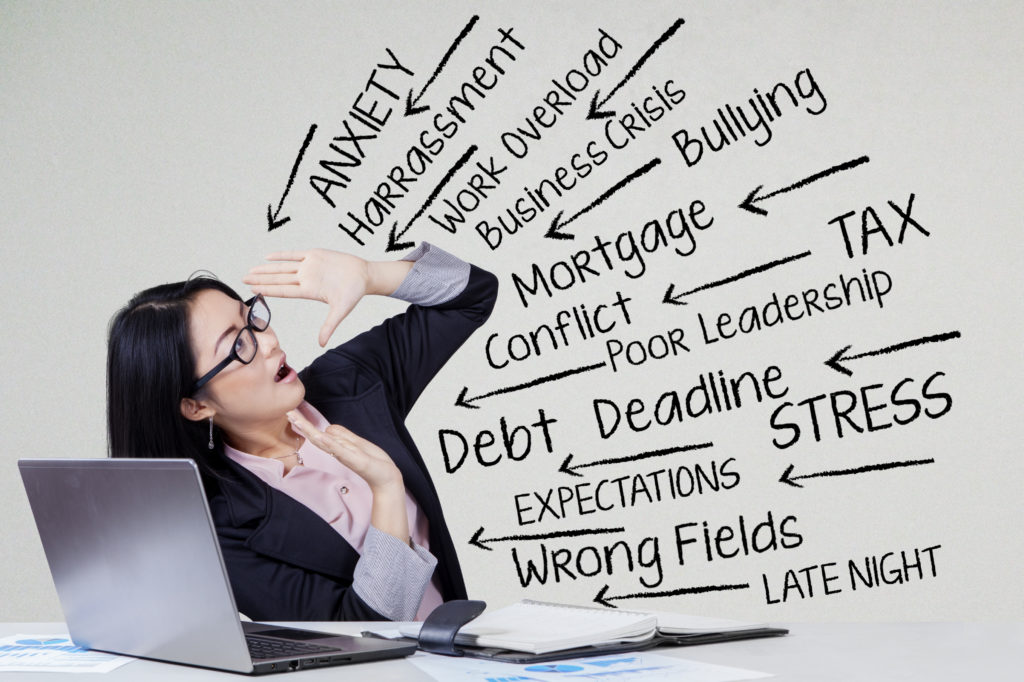
High levels of stress at work –– and outside of it –– can affect physical health, too. Repeated activation of the fight-or-flight response can disrupt bodily systems and increase susceptibility to disease. For example, repeated release of the stress hormone cortisol can disturb the immune system, and raise the likelihood of developing autoimmune disorders, cardiovascular disease, and Alzheimer’s disease. Chronic stress can also affect health by interfering with healthy behaviors, such as exercise, balanced eating, and sleep.
Work stress can also harm companies or organizations. Burnout reduces job productivity and boosts absenteeism and job turnover, and also leads to conflict between coworkers, causing stress to spread within a workplace.
How can you cope with work stress?
All of us can benefit by learning skills to manage fear and anxiety on the job. Several skills taught in cognitive behavioral therapy may help, including these:
- Relaxation strategies.
 Relaxation helps counter the physiological effects of the fight-or-flight response. For example, progressive muscle relaxation helps reduce muscle tension associated with anxiety. To practice this skill, sit comfortably with your eyes closed. Working from your legs upward, systematically tense and relax each major muscle groups. Hold the tension for 10 seconds; release tension for 20 seconds. Each time you release muscle tension, think “relax” to yourself. This skill and many other relaxation strategies can help reduce symptoms of anxiety.
Relaxation helps counter the physiological effects of the fight-or-flight response. For example, progressive muscle relaxation helps reduce muscle tension associated with anxiety. To practice this skill, sit comfortably with your eyes closed. Working from your legs upward, systematically tense and relax each major muscle groups. Hold the tension for 10 seconds; release tension for 20 seconds. Each time you release muscle tension, think “relax” to yourself. This skill and many other relaxation strategies can help reduce symptoms of anxiety. - Problem-solving. Problem-solving is an active coping strategy that involves teaching people to take specific steps when approaching a roadblock or challenge. These steps include defining the problem, brainstorming potential solutions, ranking the solutions, developing an action plan, and testing the chosen solution.
- Mindfulness. Mindfulness is the ability to pay attention to the present moment with curiosity, openness, and acceptance.
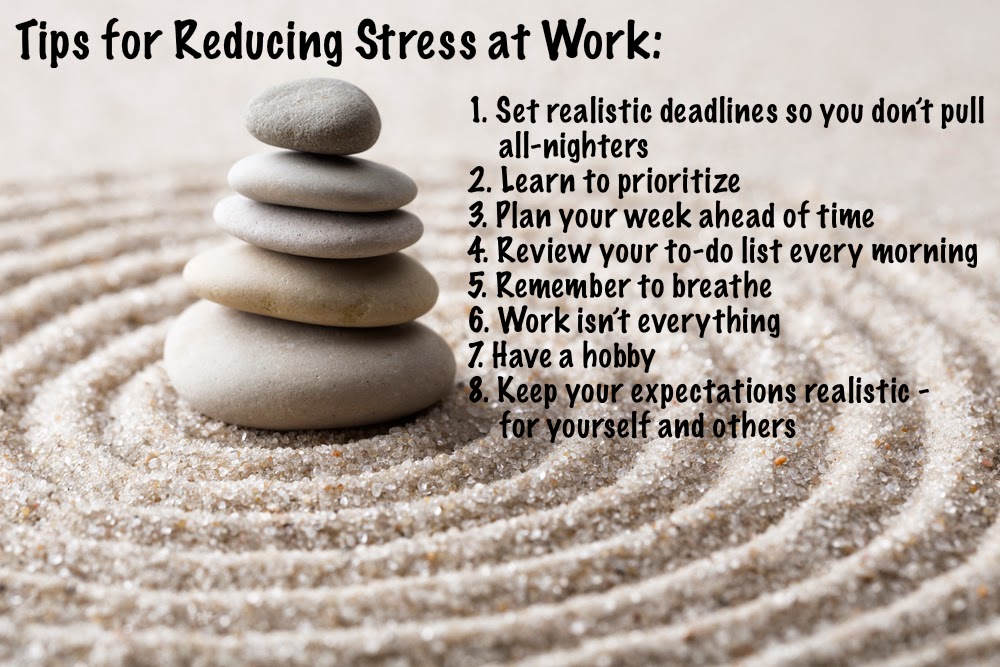 Stress can be exacerbated when we spend time ruminating about the past, worrying about the future, or engaging in self-criticism. Mindfulness helps to train the brain to break these harmful habits. You can cultivate mindfulness skills through formal practice (like guided meditation) and informal exercises (like mindful walking), or try mindfulness apps or classes. Mindfulness-based therapies are effective for reducing symptoms of depression and anxiety.
Stress can be exacerbated when we spend time ruminating about the past, worrying about the future, or engaging in self-criticism. Mindfulness helps to train the brain to break these harmful habits. You can cultivate mindfulness skills through formal practice (like guided meditation) and informal exercises (like mindful walking), or try mindfulness apps or classes. Mindfulness-based therapies are effective for reducing symptoms of depression and anxiety. - Reappraising negative thoughts. Chronic stress and worry can lead people to develop a mental filter in which they automatically interpret situations through a negative lens. A person might jump to negative conclusions with little or no evidence (“my boss thinks I’m incompetent”) and doubt their ability to cope with stressors (“I’ll be devastated if I don’t get the promotion”). To reappraise negative thoughts, treat them as hypotheses instead of facts and consider other possibilities. Regularly practicing this skill can help people reduce negative emotions in response to stressors.

14 Ways to Manage Work Stress and Avoid Burnout
Work-related stress can get the best of us all. Emails, Slack messages, phones ringing off the hook, your co-worker dropping by for an impromptu meeting — it’s enough to make anyone frazzled.
Feeling some tension is normal, especially if you’re facing a looming deadline or challenging assignment. But when work stress becomes chronic, it can end up affecting both your physical and emotional well-being.
Experiencing work strain is unavoidable — even if you love what you do — but there are steps you can take to keep job stress to a minimum.
This might sound overly simple, but it’s easy to underestimate how much stress effects you. Take note if you find yourself emotionally exhausted and pessimistic by the end of the day.
Long-term exposure to unmanaged stress can take a toll on your body and mental health, and recent research suggests a potential link between work-related burnout and depression and anxiety.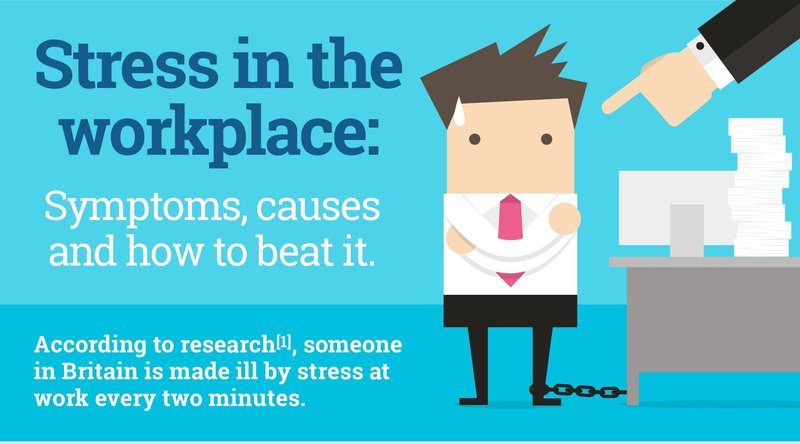
Signs of stress
Here’s a look at some of the subtler signs of stress:
- low energy or fatigue
- headaches
- insomnia
- changes in appetite
- digestive issues
- rapid heart rate
- sweating
- low self-esteem
- loss of sex drive
- frequent illnesses
Identifying and recording stressful situations can help you understand what’s bothering you. Some of these can be subtle sources of tension, such as an uncomfortable workspace or a long commute.
Keep a journal for 1 week to track your stress triggers and your reactions to them. Make sure to include the people, places, and events that gave you a physical, mental, or emotional response.
As you write, ask yourself:
- How did this make me feel? (Afraid, angry, hurt?)
- What was my reaction? (Did I visit the vending machine afterward or go for a walk?)
- What are some ways of resolving it? (How can I find solutions to this stressor?)
Taking even a few minutes of personal time during a busy day can help prevent burnout.
Listening to an interesting podcast in between meetings or watching a funny Youtube video can give you relaxing pauses throughout the day.
It’s also important to take breaks from thinking about your job by not checking work-related emails on your time off or disconnecting from your phone in the evenings.
Read about more ways to recharge.
Sometimes, feeling overwhelmed by work comes down to how organized you are. Try setting up a priority list at the beginning of your work week by preparing tasks and ranking them according to importance.
You can also beat procrastination by setting aside specific time blocks for deep concentration work.
Being available around the clock will easily burn you out. It’s important to create clear boundaries between your work and home life to help you avoid potential stress.
Part of this means setting aside time for socializing and establishing rules for when you’ll check emails or take phone calls.
When you’ve experienced worry and chronic stress for an extended period of time, your mind may tend to jump to conclusions and read into every situation with a negative lens.
For example, if your boss doesn’t say hi to you first thing in the morning, you might react thinking “they’re mad at me.”
Instead of making automatic judgements, try distancing yourself from your negative thoughts and simply observe.
Keep in touch with trusted friends and family members to help cope with stressful work situations.
If you’re struggling with an especially challenging work week, try asking parent friends if they can help out with carpooling your kids to school on certain days.
Having people you can rely on during the tough times can alleviate some of the built-up tension.
Setting aside time for self-care is a must if you regularly find yourself feeling overwhelmed by work. This means prioritizing sleep, setting aside time for fun, and making sure you’re eating throughout the day.
Feel like you don’t have the time? Keep in mind that you’ll likely be able to tackle work issues more effectively when your core needs are being met.

Purposefully slowing down and being conscious of your surroundings can keep you relaxed throughout the week. Meditation, deep breathing exercises, and mindfulness all work to calm your anxiety.
Start by taking a few minutes each day to focus on being present and enjoying a simple activity — whether that’s a short walk around the park or appreciating a meal at your desk.
Make it a habit
Here are a few other ways to build mindfulness into your daily routine:
- Pause for a few moments before starting your workday and set your intention.
- Download a meditation app you can use when feeling excessive pressure at work or during your commute.
- Schedule in a 5-minute break to try breathing exercises.
Workplace conflict can take a major toll on your emotional well-being. Try to avoid participating in gossipy situations.
If you know that one of your colleagues is especially prone to gossip, find a way to spend less time with them or steer the conversation to safer topics.
Some other strategies for staying out of the fray include:
- emphasizing the positive (“Tom has been juggling a lot lately and handling it really well.”)
- ignoring the conversation and changing the subject to something unrelated
- walking away (“Sorry, I have a huge deadline due after lunch and can’t stay and chat.”)
If you need to get that presentation just right or find yourself working extra hours perfecting a report you finished days ago, it may be time to take a step back and reflect.
While perfectionism has some positive benefits, it can also be highly stressful and lead to burnout.
Try to keep your high standards in check by focusing on the effort you put into a project and not personalizing failure when you make a mistake.
Being able to disconnect or “switch off” from responsibilities and job-related activities can help you relax and unwind like no other.
You don’t have to jet set across the world, either. A work-free staycation or trip a few hours out of town can still help you reset.
A work-free staycation or trip a few hours out of town can still help you reset.
Getting support from your boss can significantly alleviate feelings of burnout.
Set up a quiet time to talk with them and calmly discuss feeling overwhelmed by challenging tasks. Approach the conversation from a place of problem solving, rather than listing out complaints.
For example, you could say that you want to revisit what’s expected of you outside of working hours because things feel a bit overwhelming right now. The point is to find a resolution that helps reduce strain.
If this task sounds daunting or you don’t have a good relationship with your boss, consider reaching out to someone in your company’s human resources department (if available). They can help you navigate the conversation and offer troubleshooting tips.
You don’t need to have a mental health condition to try therapy. Feeling overwhelmed at work is a perfectly valid reason to reach out for additional help and support.
Working with a therapist can help you better identify the sources of your work stress and help you come up with ways to better navigate them. They can also help you develop strategies for decompressing and taking care of yourself.
Not sure where to start? Our guide to therapy for every budget can help.
How to deal with stress at work: 12 ways
Career
We do not have enough time, and every day more and more - this is considered the cause of work stress. But there are only 24 hours in a day - how best to organize yourself and your day in order to cope with stress at work ?
1. Try not to be distracted from one lesson. For example, don't leave your work email open on your computer screen all day long: set aside a well-defined time to read and reply to new emails.
2. Get the job done. Don't leave a task you've already started to do something else that might be easier or more interesting.
3. Don't put off until tomorrow. Don't have the guts to start a huge annual report and instead decide to clean up your desk or read the news on the internet instead? Yes, at this particular moment it will become a little easier for you, but further events run the risk of turning far from in your favor: things accumulate, anxiety grows, self-esteem falls ...
4. Be sure to take breaks. For those who are accustomed to work from morning to evening without straightening their backs and tirelessly, labor efficiency is often lower than for those who reasonably distribute their efforts! Fatigue imperceptibly accumulates, concentration of attention falls, all things merge into one unbearable lump, it becomes heavier on the soul ... Get up from the computer, stretch properly, do a few squats or try to go outside for a while - just to walk and look at the clouds!
5. Give meaning to your work. When we are busy with the work we are passionate about, efforts and time seem to disappear for us! We enjoy our work if we clearly understand that we are doing something useful, in accordance with ourselves, our beliefs and abilities.
When we are busy with the work we are passionate about, efforts and time seem to disappear for us! We enjoy our work if we clearly understand that we are doing something useful, in accordance with ourselves, our beliefs and abilities.
6. Know your limits. You can't do everything - this simple thought is useful to remind yourself, especially if you are prone to perfectionism or consider working achievements to be your most important virtue. In the end, you still won't be able to do a good job if you feel bad because you have brought yourself to a state of professional burnout.
7. Learn to ask for help. And feel free to speak out loud about the difficulties you face. In order for the to cope with the stress of the job, the (false) belief that you are omnipotent and that the whole world should be supported only on your shoulders must first be abandoned.
8. Always strive to be clear about your responsibilities. Firstly, it will allow you to plan your time with more confidence and correctly calculate your efforts, and secondly, it will be much more difficult for your colleagues or superiors to “throw” you an additional business.
Always strive to be clear about your responsibilities. Firstly, it will allow you to plan your time with more confidence and correctly calculate your efforts, and secondly, it will be much more difficult for your colleagues or superiors to “throw” you an additional business.
9. Learn to say no. The workload is growing, the boss keeps giving new tasks, and you feel uncomfortable refusing him? To begin, name your feelings out loud: “I feel embarrassed to say no to you. Then state your position clearly - speaking in the first person ("I", "my work", etc.) and avoiding excuses. For example, something like this: “You are asking me to take on this project. This is beyond the scope of the work that was planned. My schedule is very busy as a result.” Finally, name how you feel about this situation: "I feel like I'm wasting my effort."
10. Know your worth. The more accurate your understanding of how valuable your knowledge and skills are in the labor market, the easier it will be for you to respond adequately to criticism.
11. Do not dramatize events. The boss didn't say hello to you this morning, and there are rumors around the office about a possible reduction in personnel? Don't get ahead of yourself: the golden rule under stress is to only handle trouble as it comes. And by the way, the boss is also a living person, who is sometimes covered with problems. Don't take all the negativity personally!
12. Reward yourself! Even if the working day was not the most successful, be sure to celebrate your achievements - even the most modest ones. And don't forget to compliment yourself!
Zolotareva Elizaveta
Tags
- Work
- Career
- Psychology
Stress at work, ways to manage stress in the workplace. Dealing with stress after being fired - Safety Psychology
We will talk about the nature of stress at work and its causes. You will also find here interesting and necessary recommendations on ways to limit and manage stress in the workplace.
You will also find here interesting and necessary recommendations on ways to limit and manage stress in the workplace.
A person in a big city is in a state of constant tension. It is important to be in time everywhere and to do everything: in the morning, put yourself in order, have breakfast, send the children to school. To catch the bus, to work... The work schedule is scheduled for weeks and months in advance, so the lack of time is especially acute in the workplace. It seems that as soon as a person crosses the threshold of a checkpoint or office, he turns from a nice respectable citizen into a ferocious Cerberus, ready to tear everyone he meets. And all why? Production stress!
And yet, despite the fact that stress is a normal part of our lives, we should not forget that constant stress at work significantly reduces productivity, physical and emotional health. That's why it's so important to find ways to keep work stress under control. Fortunately, each of us can independently limit and manage stress at work, for this it is necessary to correctly identify its signs.
Signs of stress at work
How do you know when you need to do something about work stress? Signs of occupational stress will help you with this, because the impact of stress can be truly unpredictable:
Physical signs of stress at work: headache, toothache, chest pain, heart pain, shortness of breath. Increased heart rate, high blood pressure, muscle pain, indigestion, constipation or diarrhea. Increased sweating, fatigue, insomnia, decreased immunity.
Psychosocial signs of stress at work: restlessness, irritability, sadness, anger. Frequent mood swings, hypersensitivity, apathy, depression, delayed reactions or thought spasms. Feelings of anxiety, helplessness and hopelessness.
Behavioral signs of stress at work: overeating or loss of appetite, impatience, irritability, anger, increased use of alcohol, nicotine or drugs, social withdrawal (unwillingness to communicate with other people), neglect of responsibility, low work productivity, poor personal hygiene changing relationships in the family.
How do you deal with stress at work?
Following these simple guidelines, you can easily keep stress in the workplace under control:
- Be kind to colleagues and subordinates;
- Improve your communication skills - learn to speak so that you are understood exactly the way you want;
- Follow the principles of time management, learn to manage time;
- Improve your skills - be sure to attend courses and trainings planned at work;
- Regularly perform simple physical exercises before going to work: lying in bed, you can do 20 repetitions of exercises for the abdominal muscles. Then stand up, stretch up for 10 seconds. Next, slowly do 20-30 sit-ups, and if possible, push-ups. In addition, after work, you need a light aerobic exercise, for example, a 30-minute walk at a fast pace or an hour's walk before going to bed at a calm and measured pace.
What can I do to avoid stress at work?
When people are under work stress, they become angry and irritable.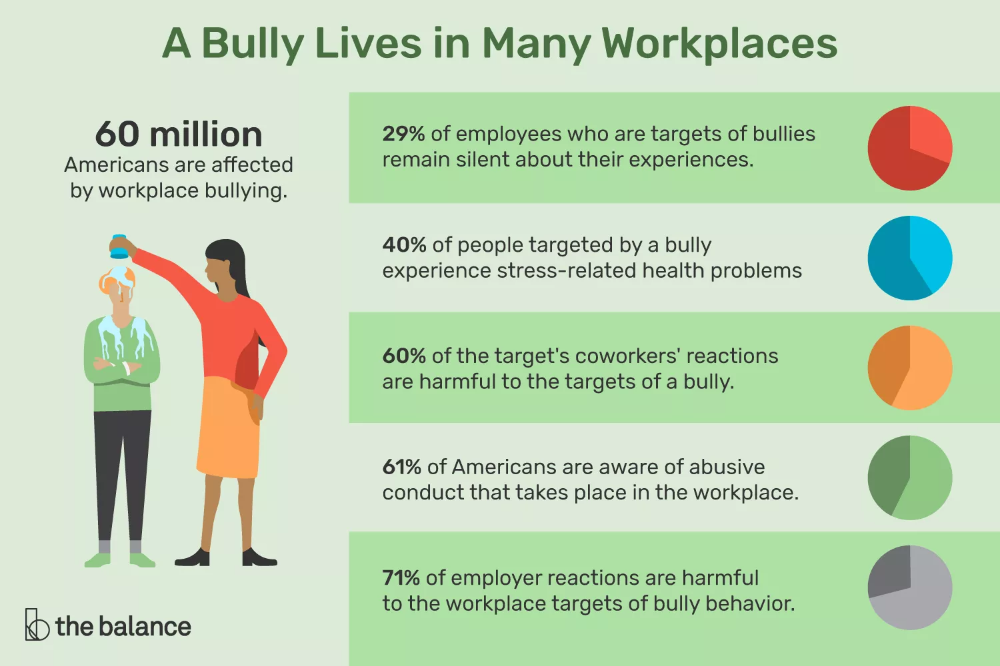 This condition is not the best way affects the quality of their work and productivity. That is why it is better to prevent stress than to deal with the unpredictable impact of stress on work. In addition, occupational stress not only reduces productivity, worsens relationships with management, colleagues and subordinates. Stress in the workplace has the most detrimental effect on health. After all, the most dangerous thing in stress at work is the duration and very often the lack of the possibility of an adequate response to an irritant. After all, you must admit, it is unreasonable to send the boss when he deserves it - and, as a result, stress.
This condition is not the best way affects the quality of their work and productivity. That is why it is better to prevent stress than to deal with the unpredictable impact of stress on work. In addition, occupational stress not only reduces productivity, worsens relationships with management, colleagues and subordinates. Stress in the workplace has the most detrimental effect on health. After all, the most dangerous thing in stress at work is the duration and very often the lack of the possibility of an adequate response to an irritant. After all, you must admit, it is unreasonable to send the boss when he deserves it - and, as a result, stress.
Why do we experience stress at work? There are many very good reasons for occupational stress:
- Fear of being fired. Job loss and stress are certainly related concepts.
- Growth in demands from superiors without an increase in wages.
- The need to constantly maintain a certain level of work.
When stress at work reduces productivity or significantly affects your personal life, it's time to take action. First, it is important to pay attention to physical and emotional health. A healthy person is much easier to deal with stress. The better you feel, the easier it will be for you to deal with stress when work gets overwhelming.
First, it is important to pay attention to physical and emotional health. A healthy person is much easier to deal with stress. The better you feel, the easier it will be for you to deal with stress when work gets overwhelming.
Taking care of yourself does not require a radical change in lifestyle. Even the smallest things can lift your spirits and boost your energy levels. Take just one step and soon you will see that the amount of stress in life has been significantly reduced. After that, you may want to take other steps to achieve balance and harmony in your life.
1 step - life in motion. Sports are a sweaty yet effective way to uplift your mood, boost your energy, sharpen your focus, and relax your mind and body. For maximum relaxation, you will need 30 minutes of daily intense physical activity.
Step 2 – food is a joy. It is advisable to eat what you want right now, from which “drooling”. If possible, eat small and fractional meals in a calm, conducive environment for a meal.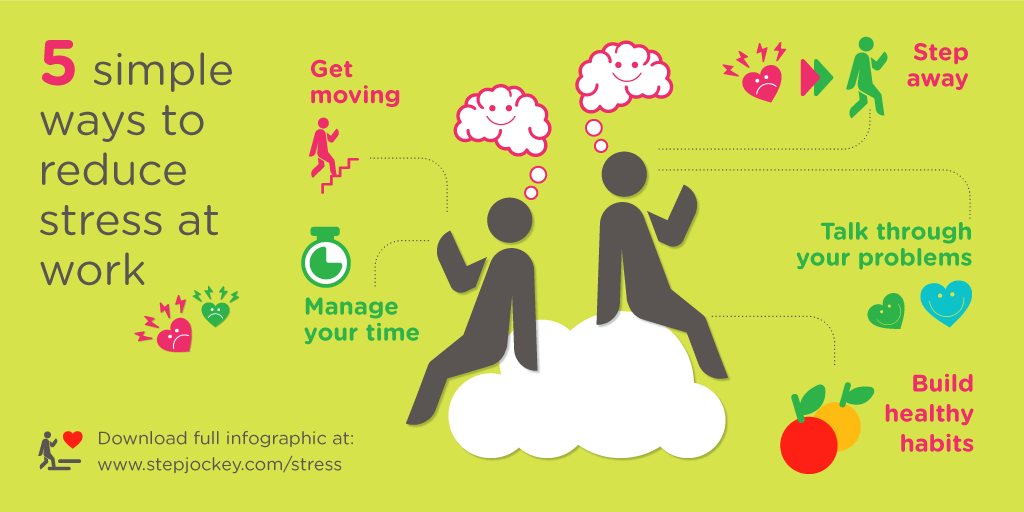 Food culture is an important component of a healthy diet. In addition, frequent and small snacks help maintain normal blood sugar levels - because low sugar levels make you feel anxious and irritable. We also recall that overeating makes a person lethargic and deprives of working capacity for a long time.
Food culture is an important component of a healthy diet. In addition, frequent and small snacks help maintain normal blood sugar levels - because low sugar levels make you feel anxious and irritable. We also recall that overeating makes a person lethargic and deprives of working capacity for a long time.
Step 3 - everything in moderation. It is important to reduce alcohol consumption to a minimum. Understanding that a simple overdose of alcohol reduces the performance of the human body by half for 3-4 days is a good argument in favor of moderate consumption during the working week and beyond. Smoking reduces immunity, destroys blood vessels, causes irreparable harm to the pulmonary system and reduces performance by 25-30% - draw your own conclusions. Nicotine also increases anxiety levels, and this is a direct road to depression.
Step 4 - healthy sleep. Anxiety and stress are the main causes of insomnia. However, lack of sleep reduces performance, reaction and ability to concentrate, which inevitably leads to stress in the workplace. Insomnia compromises the ability to cope with stress. It is much easier to maintain emotional balance when you are well rested.
Insomnia compromises the ability to cope with stress. It is much easier to maintain emotional balance when you are well rested.
How to relieve stress at work? When workplace stress is on the rise, it's impossible to just ignore it. Fortunately, there are easy ways to regain control of the situation. Your ability to self-control will be perceived by others as a strength, which will lead to an improvement in your relationships with colleagues and superiors.
Here are some tips for reducing stress at work by improving organization and choosing the right life goals and professional priorities:
- Creating a balanced schedule. Analyze your schedule, responsibilities and daily tasks. Remember that your job should not be a survival game. Try to find a balance between work and family life, social activities and hobbies, daily responsibilities and relaxation.
- Do not overload yourself. Avoid constant stress. Try not to put off many important tasks until the last day.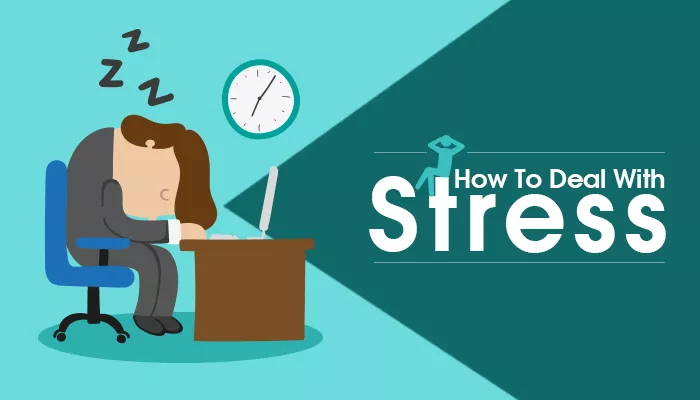
Wake up earlier. A reserve of 10-15 minutes will save you from the rush and morning stress. Getting up early will make your day a little longer and allow you to be more punctual.
- Take regular breaks from work. Make sure you take short breaks for your brain throughout the day. At lunch, try to leave your workplace. A short rest will help you relax, it will help you work productively.
Workplace Stress Reduction Tips:
- Priority List. Make a list of the tasks you need to complete in descending order of their importance. Focus on the highest priorities first. If you need to do something not particularly pleasant, do it as soon as possible. And devote the rest of the day to more pleasant activities and responsibilities.
- Break large projects into parts. If a large project seems impossible, don't be afraid, just break it down into a large number of small stages-steps and carry them out gradually. Focus on completing each step individually, instead of thinking about everything at once.
- Delegate responsibility. You don't have to do everything. If there are people in your company who can handle one of your tasks, why not let them handle that task? Let go of the desire to independently perform and control all, even the most insignificant, tasks. And you will reduce your stress level.
Reducing stress at work with emotional self-control
Emotional self-control in the workplace has four main components:
* Self-awareness is the ability to recognize your emotions and understand their impact on your decisions.
* Self-management - the ability to control one's emotions and behavior and adapt to changing circumstances.
* Social consciousness - the ability to feel, understand and respond to the feelings and emotions of other people. Helps to feel comfortable in the team.
* Relationship management - the ability to inspire, influence and interact with others, the desire and ability to manage conflicts.
The greater your capacity for emotional self-control, the easier it is for you to cope with work stress. Fortunately, emotional self-control is not innate, it is something we can learn throughout our lives.
Fortunately, emotional self-control is not innate, it is something we can learn throughout our lives.
For example, changing jobs is also stressful. How to emotionally prepare yourself for a new team and survive the first time in a new place with the least emotional losses? You need to gradually develop the skills of emotional and non-verbal communication, which include the following techniques:
* Admit to yourself that you may be stressed. Prepare for stress psychologically - remember the state of inner harmony and peace. Try to learn how to enter this state in any situation. Perhaps deep breathing or memories of happy moments in life will help you with this.
* Be aware of your own emotions. Say to yourself: “now I am angry” or “now I am offended”, etc. This exercise will help you remember negative emotions, realize and try to switch to a positive way. This practice will help you learn to understand not only your emotions, but also the emotions of the people around you. For example, if you recently got a job, this will help you quickly integrate into the team and understand who is who.
For example, if you recently got a job, this will help you quickly integrate into the team and understand who is who.
* Learn to recognize and use non-verbal cues effectively, which make up 95-98% of your communication process. Remember that what matters is not what you say, but how you say it.
* Laugh. Nothing clears the air like a good joke. But know the measure, because. pranks on other people can backfire. Don't laugh at your colleagues.
Learn to listen. A person who knows how to listen is very valuable.
Dealing with stress after being fired from work.
None of us is immune from the blows of fate. In our difficult times, job loss is not at all uncommon, firms close unexpectedly and many employees are not ready for such a turn, and after losing their jobs they fall into a deep depression and not only cannot, but also do not want to look for a new job.
There is no universal remedy for bad mood and depression, but there are a number of elementary solutions that will eventually bring your condition back to normal.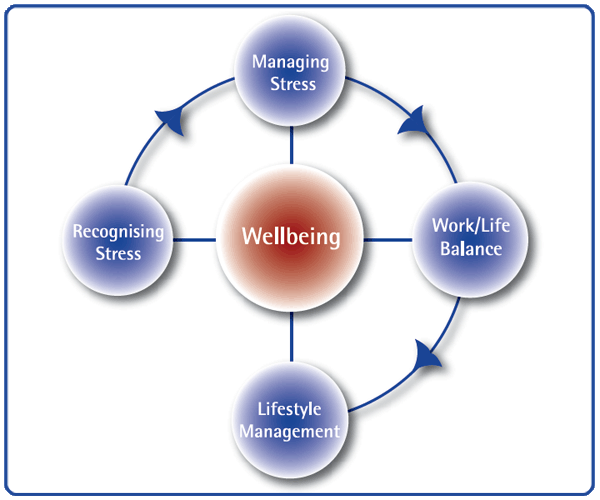 Dismissal is always a stress factor and the main cause of depression, therefore, in order to survive a stressful situation with the least losses, you must adhere to some rules. Symptoms of stress after job loss can be different - they are laziness, loss of appetite, irritability, emotional and physical exhaustion, bad mood and well-being.
Dismissal is always a stress factor and the main cause of depression, therefore, in order to survive a stressful situation with the least losses, you must adhere to some rules. Symptoms of stress after job loss can be different - they are laziness, loss of appetite, irritability, emotional and physical exhaustion, bad mood and well-being.
It’s not always worth rushing to look for a new job after being fired, you will experience even more stress if you can’t do it the first time and in a short time. Sometimes it's better to give yourself time to rest, especially if the previous job was hard and stressful. However, just lying at home in bed and watching TV all day is not an option. Such a rest will hardly help to get out of prostration. Don't let yourself freeze in one place. The longer you lie on the bed, the harder it will be to get out of it later. Remember, it is much harder to get out of a state of deep stress, it will be impossible to cope and eliminate all the symptoms of depression on your own and you will have to turn to specialists - psychologists and psychotherapists.
Movement is life , therefore, no matter what, walk, exercise, move, go shopping, cafes, meet friends and spend more time with family and friends. Visit those places where you could not go in the past due to high employment at work. This may be a cinema, various municipal institutions, a medical examination in a clinic or a visit to the dentist. Sign up for a pool, fitness, or refresher course. Get no more than 8 hours of sleep a day.
During this forced rest period, there will be time to think about your wishes for a new job. Do you want to do what you used to, or would you like to try something new? Or maybe you have long dreamed of finding a new profession, trying yourself in a new “role”?
Try to find inspiration in everything, watch movies, read books, imagine yourself working in a new interesting position or dream with pleasure about returning to your old profession, only in a new place. Draw images of your new colleagues in the specialty. All this will help you miss work and start looking for it with renewed vigor. A good way to get rid of emotional stress is to pour out your soul, tell a close friend or relative about your pain, cry, remember everything that worries you, but only once. Tell and forget.
All this will help you miss work and start looking for it with renewed vigor. A good way to get rid of emotional stress is to pour out your soul, tell a close friend or relative about your pain, cry, remember everything that worries you, but only once. Tell and forget.
Set yourself up in a positive mood so that nothing happens to you, be it a job loss or any other stressful situation, nothing can be changed, but you still have to continue to live and work. Stop blaming yourself and look for negative aspects in yourself, pull yourself together and look for only positive aspects in any situation. Remember your virtues, write them down on paper, thereby you will raise your self-esteem and easily find a new job. Good specialists are needed always and everywhere, convince yourself that you are a qualified worker, a positive person and an excellent colleague. Even if the first time you fail to find a suitable job, do not despair, continue to search and work on yourself, then such a cause of stress as a job loss will seem like a trifle to you.


